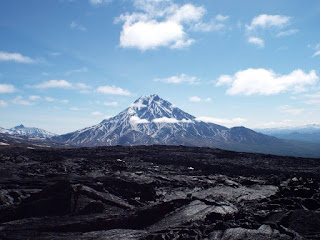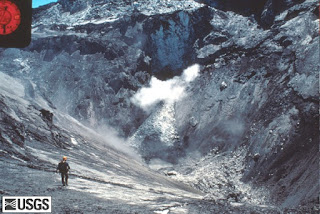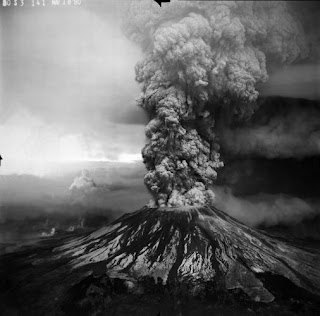Contents under pressure

-Alison How does it make you feel when a headline reads "molten magma beneath your feet"? It sure sounds exciting, and when it’s followed immediately by some line about disaster or cataclysm it can be quite stressful. Before we tackle the details, let’s start off with-- there is very little magma down there. Most of the Earth’s mantle is quite solid, it is hot, but not much of it is liquid. Some headlines are just click bait, or they've taken some grain of truth and stretched it until it causes that right amount of drama. We can, with a bit of detective work, weed out what real information in the news from the soap opera. The lovely glow from molten rock. This was made in my lab from remelting natural lava. One way is to first wrap our heads around the scale of things "beneath our feet". Just what do we mean when we say the Earth is hot inside? How far must we go to get to hot stuff? More importantly, how much is liquid down there? If you head to a geolog



